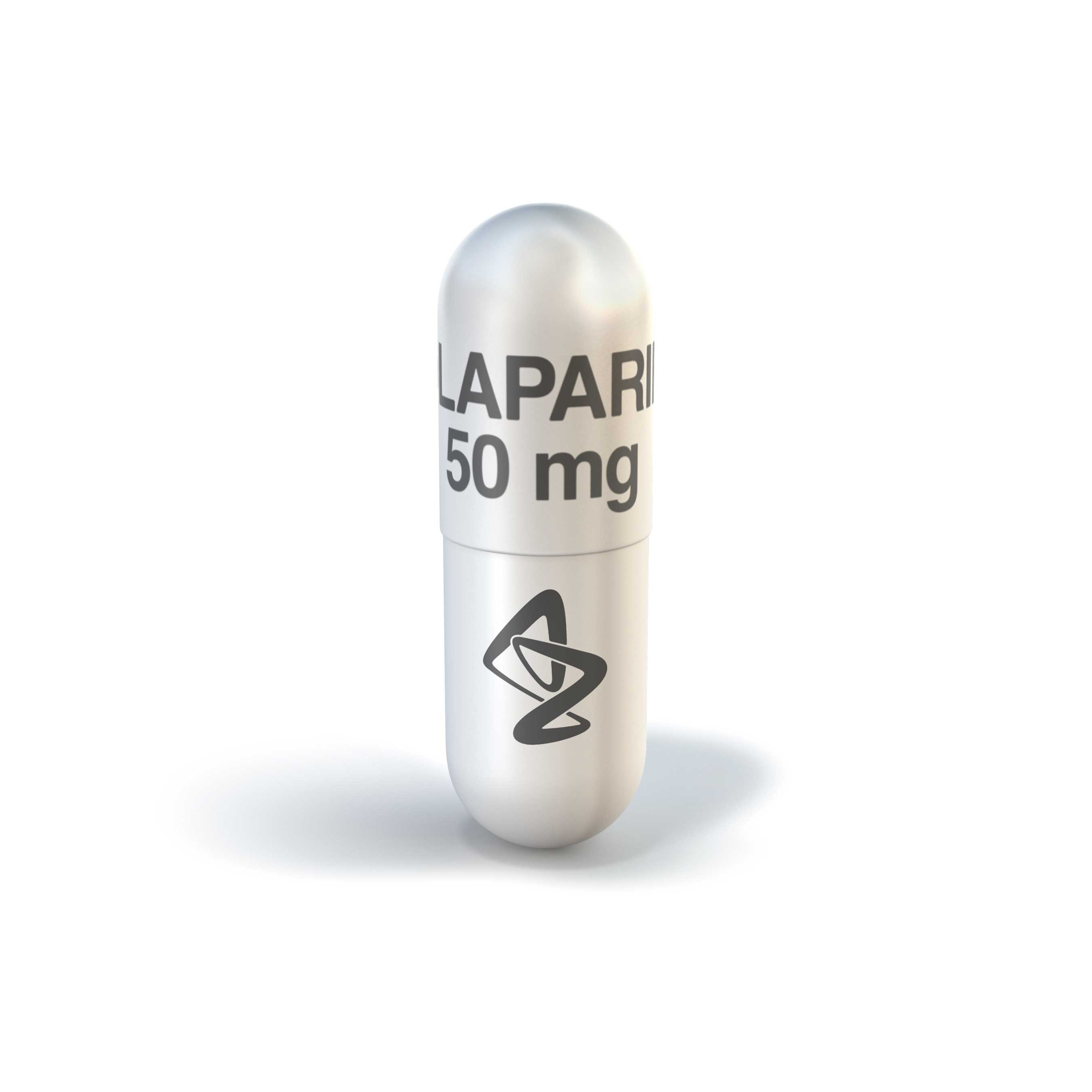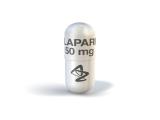LYNPARZA™ APPROVED BY THE US FOOD AND DRUG ADMINISTRATION FOR THE TREATMENT OF ADVANCED OVARIAN CANCER IN PATIENTS WITH GERMLINE BRCA-MUTATIONS
There are no contraindications for LYNPARZA. Warnings and precautions include myelodysplastic syndrome/acute myeloid leukemia, pneumonitis and embryo-fetal toxicity (see Important Safety Information below).
Dr. Briggs Morrison, Executive Vice President, Global Medicines Development and Chief Medical Officer at AstraZeneca, said “LYNPARZA is an excellent example of how advances in the understanding of cancer biology can be used to develop targeted medicines. It is a much-needed new therapeutic option for patients with germline BRCA -mutated advanced ovarian cancer.”
The FDA approval is based on efficacy data from a single-arm Phase II study1 of LYNPARZA in patients with deleterious or suspected deleterious germline BRCA-mutated advanced ovarian cancer, as well as safety data from several other studies, including a placebo-controlled study. The efficacy of LYNPARZA is based on analysis of 137 patients with measurable, germline BRCA mutated-advanced ovarian cancer treated with three or more prior lines of chemotherapy. The trial results demonstrated an overall response rate of 34% (95% CI: 26%, 42%; complete response 2%, partial response 32%). The median duration of response was 7.9 months (95% CI: 5.6, 9.6 months). The most common adverse reactions reported have been generally mild to moderate and have included nausea, vomiting, fatigue and anaemia (see Important Safety Information below).
Dr. Ursula Matulonis, Associate Professor of Medicine, Harvard Medical School and Director of the Gynecologic Oncology Program at Dana-Farber Cancer Institute in Boston, MA, said: “Ovarian cancer is diagnosed in nearly 22,000 women per year.2 The long-term survival rate in patients with advanced ovarian cancer is 10% to 30%.3 The FDA approval of LYNPARZA is a significant milestone for our patients as currently there are only limited treatment options available to women with ovarian cancer who carry the BRCA mutation."
Concurrent with the approval of LYNPARZA, the FDA has approved the BRACAnalysis CDx™ (Myriad Genetic Laboratories) for the qualitative detection and classification of variants in the BRCA1 and BRCA2 genes.
Important Safety Information
There are no contraindications for LYNPARZA.
Myelodysplastic syndrome/Acute Myeloid Leukemia (MDS/AML) have been confirmed in 2% of patients enrolled in both a single arm monotherapy trial (6 out of 298) and a randomized placebo controlled trial (3 out of 136). Overall, MDS/AML were reported in <1% of patients (22 out of 2,618) treated with LYNPARZA. The majority of MDS/AML cases were fatal (17 out of 22) and the duration of therapy in patients who developed secondary MDS/AML varied from <6 months to >2 years.
Monitor complete blood count testing at baseline and monthly thereafter. For prolonged hematological toxicities, interrupt LYNPARZA and monitor blood counts weekly until recovery.
Pneumonitis, including fatal cases, occurred in <1% of patients treated with LYNPARZA. In clinical studies, the most common adverse reactions (Grades 1-4) in > 20% of patients included anemia, nausea, fatigue (including asthenia), vomiting, diarrhea, dysgeusia dyspepsia, headache, decreased appetite, nasopharyngitis/pharyngitis/URI, cough, arthralgia/musculoskeletal pain, myalgia, back pain, dermatitis/rash and abdominal pain/discomfort.
Coadministration of drugs which are potent inhibitors or inducers of CYP3A could increase or decrease exposure to LYNPARZA and should be avoided. Clinical studies of LYNPARZA in combination with other myelosuppressive anticancer agents, including DNA damaging agents, indicate a potentiation and prolongation of myelosuppressive toxicity.
LYNPARZA is Pregnancy Category D.
LYNPARZA is not recommended for use in patients with hepatic impairment (serum bilirubin greater than 1.5 times upper limit of normal), moderate renal impairment or severe renal impairment, since safety and efficacy have not been established.
Please see accompanying complete Product Information, including Patient Information (Medication Guide).
1 Kaufman B, Shapira-Frommer R, Schmultzler RK et al. Olaparib Monotherapy in Patients With Advanced Cancer and a Germline BRCA1/2 Mutation. Journal of Clinical Oncology 2014.http://jco.ascopubs.org/content/early/2014/10/30/JCO.2014.56.2728
2 American Cancer Society. “Ovarian Cancer Overview.” Accessed December 2014.http://www.cancer.org/acs/groups/cid/documents/webcontent/003070-pdf.pdf
3 Hennessey B, Coleman R, Markman M. Ovarian Cancer. Lancet Oncology. 2009.374:1371-1382.
4 SEER Cancer Statistics Factsheets: Ovary Cancer. National Cancer Institute. Bethesda, MD, Accessed December 2014. http://seer.cancer.gov/statfacts/html/ovary.html
5 National Cancer Institute. “BRCA1 and BRCA2: Cancer Risk and Genetic Testing.” Accessed December 2014. http://www.cancer.gov/cancertopics/factsheet/Risk/BRCA
NOTES TO EDITORS
About ovarian cancer
Ovarian cancer is the fifth leading cause of cancer death among women in the United States, mainly because it is often diagnosed late and has an extremely poor prognosis.2 For the 61% of ovarian cancer patients whose cancer has metastasized by the time of diagnosis, the five-year survival rate is only 27%.4
Up to 15% of women with ovarian cancer have a BRCA mutation, which is the most common cause of homologous repair deficiency.5 In BRCA-mutated tumor cells, homologous recombination is defective and DNA double-strand break repair is forced to occur via error-prone pathways, which can lead to genomic instability and cell death.
About LYNPARZA (olaparib)
LYNPARZA is a first-in-class oral poly ADP-ribose polymerase (PARP) inhibitor. The FDA’s approval follows the
announcement on December 18 of the approval of LYNPARZA in the European Union.
AstraZeneca is conducting multiple Phase III studies across a variety of indications and tumor types for LYNPARZA. For more information visit www.astrazenecaclinicaltrials.com.
LYNPARZA is a trademark of the AstraZeneca group of companies.
About AstraZeneca
AstraZeneca is a global, innovation-driven biopharmaceutical business that focuses on the discovery, development and commercialization of prescription medicines, primarily for the treatment of cardiovascular, metabolic, respiratory, inflammation, autoimmune, oncology, infection and neuroscience diseases. AstraZeneca operates in over 100 countries and its innovative medicines are used by millions of patients worldwide. For more information please visit: www.astrazeneca.com-us
CONTACTS
Media Inquiries
| Michele Meixell | +1 302 885 2677 |
| Alisha Martin | +1 302 885 2677 |
3064809 Last Updated 12/14
Video Gallery
Photo Gallery
MPEG-4 Video
Right-click the links below for ‘SAVE’ options
AstraZeneca US Headquarters, Wilmington, DE





